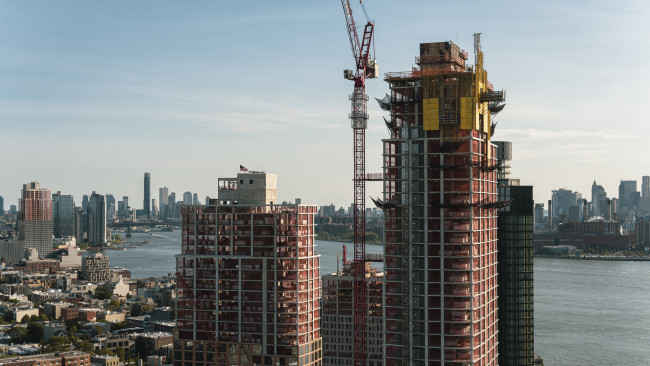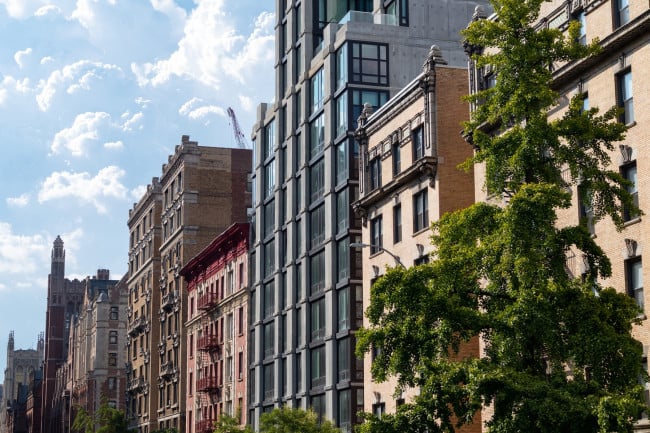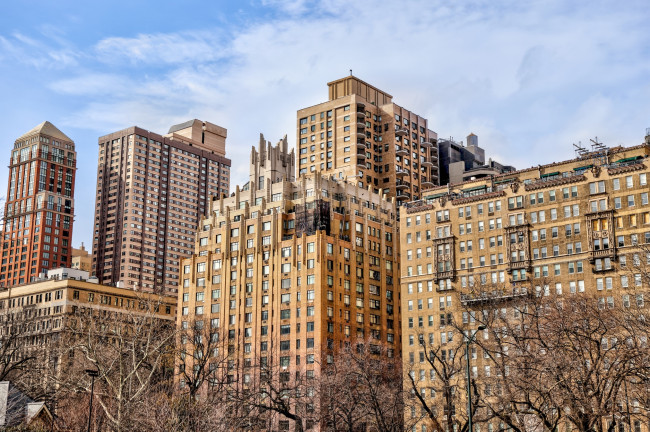Nikki's Notes: How can buyers make sense of high maintenance fees and common charges at co-ops and condos?
- The building's size, staffing, and level of services all factor into the monthly fees that owners pay
- Your attorney should look for a history of increases and assessments and if there is a reserve fund

The monthly fees vary widely across buildings and are different for co-ops and condos, making it hard to compare those apartment types.
iStock
Common charges and maintenance fees are so high in NYC. How can buyers make sense of them?
The concern about hefty carrying costs at New York City co-op and condo buildings is understandable given how much they impact what you can afford to buy. While these costs vary greatly from building to building, you should plan on budgeting for an average of about $2.70 per square foot, or $4,050 per year ($337 per month) for a 1,500-square-foot apartment—on top of your mortgage payment.
"Lenders are going to factor in the monthlies because they impact your debt-to-income ratio," said Nikki Beauchamp, a broker at Sotheby's International Realty with over two decades of experience representing buyers and sellers in New York City. "And co-op boards can impose a stricter debt-to-income ratio than lenders."
Because it can be challenging to predict your final monthly output, here are some important considerations for common charges and maintenance fees.
How do monthlies differ at co-ops vs. condos?
In both cases, the monthly payments go toward the maintenance and repair of the building as well as staff salaries—often the largest piece.
But in co-op buildings, maintenance fees also include your portion of the building's property taxes. As such, that portion of your maintenance will be tax deductible.
Common charges for condo buildings do not include property taxes. Instead, a condo owner pays property taxes to the city separately from the building's fee.
"This makes a co-op-to-condo comparison hard because there is also a fairly substantial pricing and size difference between these two apartment types, with condos typically being smaller and more expensive," Beauchamp said. (More on this below.)
What factors determine the monthly amount?
Generally speaking, the more units and amenities a building has, the higher the carrying costs. Within the same building, monthlies are usually based on the size of the unit, with larger apartments bearing a heavier financial burden.
Beauchamp said to look at the level of service and the staffing. Are there supers, doormen, concierges, and porters? Amenities such as a fitness center, pool, and pet spa also add up.
This being NYC, exceptions to the rule exist. Many older prewar co-ops, for example, require costly updates and repairs.
Or (true story), you could be looking at two $2 million properties with roughly the same monthlies—one in a 100-unit, full-service condo building and the other in a 10-unit co-op with a part-time super.
So it often boils down to whether you want your monthlies to go toward square footage or services. One of Beauchamp's recent clients was willing to pay a premium for amenities because of a greater perceived resale value.
"But if those features don't matter, you probably don't want to pay for them," Beauchamp said.
Also keep in mind that monthly fees can increase at any time, whether incrementally or by way of an assessment, to cover capital improvements or major repairs. Then, the size of the building matters—dividing that extra fee by 100 or 10 units makes a big difference.
What are some red flags related to monthly fees?
If a building has high monthlies but not a lot of services, it's essential to find out where the monthly payments are going and how the building is run—a common conundrum in co-ops.
Specifically, your attorney should look at the history of maintenance increases, the history and purpose of any assessments, the amount (if any) of reserve funds, and the levels of insurance coverage.
"Keywords that always trigger questions for me include 'ongoing assessment' because that could indicate an open-ended cost to buyers," Beauchamp said, noting the reason could be adding amenities like a pool, which with ongoing upkeep would also cause increased maintenance fees.
"Problem is, you can't access the board's financial documents until there's an accepted offer, so I try to gather as much unofficial intel as possible before that stage," she said. This includes calling other brokers who have done deals in the building.
Sometimes the red flags are in plain sight—crumbling facades and faulty elevators among the more obvious. Such updates are now mandated under NYC's local laws.
According to Beauchamp, "There's either going to be a cost to bring the building into compliance or to pay fines for non-compliance, and those funds are going to come out of the maintenance or an assessment." The key is to find out where your building stands in the process.
"This speaks to the importance of working with a team who is experienced in NYC real estate," she emphasized. "Your cousin who practices law in the suburbs won't know what to look for."
How can a buyer avoid paying extremely high monthlies?
For starters, you can limit your search to smaller condo developments with fewer amenities, though owning in an upscale boutique building with fewer units can mean higher monthly costs.
If you are interested in a co-op, maintenance can be lower for units on lower floors.
In the past, the city gave some condo developers tax abatements as an incentive to build, with the savings passed down to owners in the form of lower common charges. However, very few of these perks exist—and those that do have an expiration date, after which the monthlies will spike.
It always behooves you to vet any co-op or condo buildings without adequate reserve funds, which ideally should be equal to at least three months of the total maintenance fees.
And while it might be tempting to buy into a building with zero history of increases or assessments, Beauchamp offered a cautionary tale: "Several years after closing, my client was hit with a steep, multi-year adjustment when a new board took over and discovered all that had been left unaddressed."
Life is unpredictable enough—better to stick with buildings that show gradual increases over time.
Nikki Beauchamp is a multilingual real estate advisor at Sotheby’s International Realty with over two decades of experience representing buyers and sellers in New York City and globally. Known for her data-driven approach and market expertise, she provides clients with valuable insights to make informed decisions. Beauchamp is an active member of the Real Estate Board of New York, currently serving as co-chair of the New York Residential Specialist executive committee. To submit a question for this column click here. To reach Nikki call (212) 606-4152 or contact via her website.
You Might Also Like


























